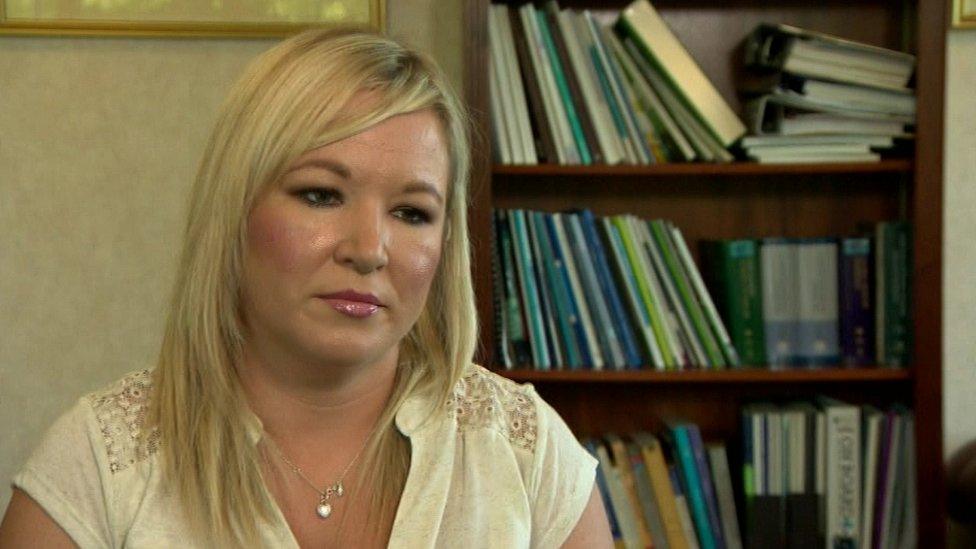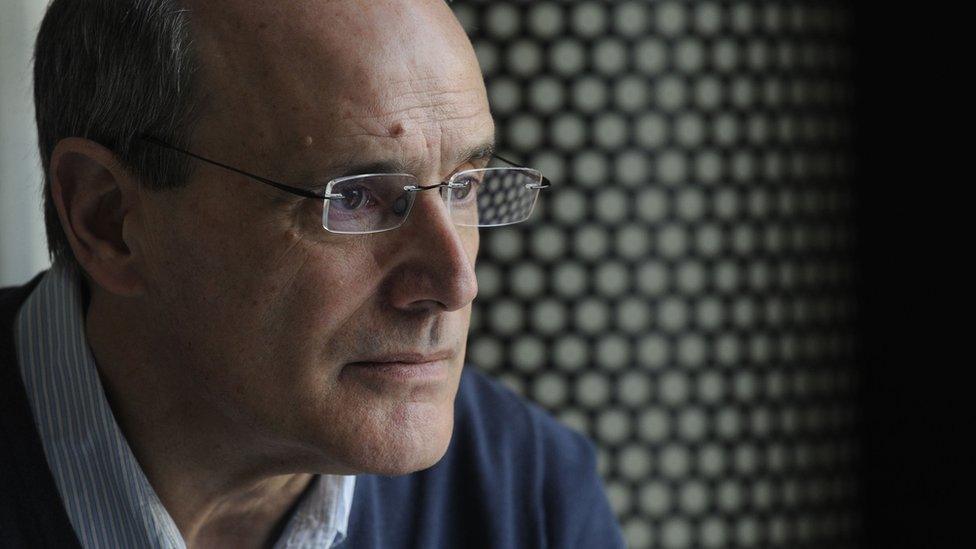Health Minister Michelle O'Neill says Bengoa Report will be 'a foundation for my vision'
- Published

Health Minister Michelle O'Neill will report to the executive in September
The health minister says she believes there is both political and clinical will to change how local health and social care services are delivered.
Michelle O'Neill was speaking after receiving the finished report from an expert panel led by Prof Rafael Bengoa.
The six-person panel was appointed last year.
It was asked to deliver recommendations on how services could become more effective and efficient.
Mrs O'Neill said she would now spend time reading the report and present her vision to the executive and the public in September.
"Provided I can secure the necessary resources, I plan to use this work as a foundation for my own vision for the long-term future of health and social care in the north," she said.
"I will publish my vision this autumn, alongside the panel's report, and aim to begin translating the political and public discussion about reform of health and social care into concrete proposals for transforming these important services," she added.
The panel has spent the past six months visiting health care sites including hospitals and health care centres. They have also met workers including the health unions.

The panel was chaired by Spanish health reform expert Prof Rafael Bengoa
Both the panel and the minister have emphasised it is not about closing hospitals but instead "reconfiguring" how they work.
Speaking to the BBC, Professor Rafael Bengoa said the system could not be sustained.
"What is happening here is that you are trying to do 21st century medicine in a model which is from the last century. So that needs modernisation. Our document contains a lot of the elements for that modernisation," he said.
While no detail was provided about what is actually contained in the report, we can glean from its title - "Systems not Structures - Remodelling Health and Social Care" - that the emphasis will be on how services are delivered not the building from which they are delivered.
While the panel met its summer deadline it is now up to the minister to come up with a plan on how those changes can be implemented.
So how can she deliver when so many others have failed?
'Burning platform'
Distinguishing herself from her predecessors, Mrs O'Neill insists that her trump card is having the backing of the political parties.
"Professor Bengoa, one of the first things he did was to get that political buy-in, that people want to remove the politics from health. That people want to actually try and transform the system.
"There is a burning platform, people do recognise we can't keep doing things the same way over and over again and to expect a different outcome."
So why should this report be any different from the others that have preceded it?
Basically, the biggest factor is that this time there is political consensus behind the Bengoa Report.
But how it translates in practice including bringing the public on board will be a completely different challenge.
That is when the hard work really starts.